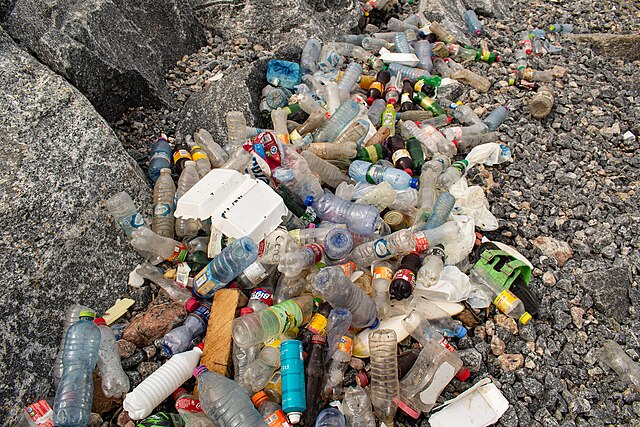
Kim Kelly, author of, "Fight Like Hell: The Untold History of American Labor", (Atria Books) host of "Unite and Win: A Guide to Workplace Organizing" podcast at workerorganizing.org, speaks with This Is Hell! to discuss her writing at The Baffler, "A Piece of Work: The Department of Labor’s anti-immigrant turn betrays its history."
We will have new installments of Rotten History and Hangover Cure. We will also be sharing your answers to this week's Question from Hell! from Patreon.Help keep This Is Hell! completely listener supported and access bonus episodes by subscribing to our Patreon.
On the extremely dark satirical show, “The Boys,” about psychotic superheroes and their corporate and military ties, the white supremacist leader of them all, Homelander, a kind of Superman knock-off, announces to a broadcast audience of hundreds of millions, “I’m through being persecuted for my strength.” Although having been a murderous, narcissistic rapist throughout his career with impunity, he’s now had enough. From now on he’s going to say what’s on his mind. “I’m not one of you. You are weak. I’m better than you. I’m through apologizing for that,” he says.
It's a timely speech, given that we, the unterpeople, who believe we should at least have a partial say in the color and texture of the tyranny governing us, are being backed up against the wall by the self-designated ubermenschen. In Nietzsche’s dichotomy, the ubermenschen, the selfish and self-aggrandizing who believe they deserve more and need follow no morality but their own, are realists, and the rest of us, who aspire to a society out from under the boot of such oppressive narcissists, are dreamers.
That’s a strong rhetorical current in US popular discourse. And it’s not solely the province of the right wing. Recall how often the pejorative phrases, “Bernie will just wave his magic wand,” or “leftist progressives want to give everyone a pony” have been repeated by centrists to bash the less-than-acquiescent left since 2016. Prepare for such rhetorical slime balloons to be wielded again over the next two years, kind of like a magic wand, to sprinkle condescension over every demand from their base a Centrist Democrat doesn’t find it expedient to support.
In the “strong” view, then, the “weak” are meant to drudge along, serving and slaving, pleasing and groveling, sickening and dying, never complaining, never resisting on pain of injury, deprivation, or death. And this they call “realistic.”
So, who’s the real dreamer? Those who want to contribute to society however much or little they’re able and be given back enough to thrive pleasantly, or those who want to rip us off without our objecting? Those who want “be all they can be” regardless of who they destroy
along the way, lift themselves above the herd as heroes and kings, and achieve riches... read more
The hypothesis I’m about to unveil would require more research than I’m willing to do, and might be impossible to address even if I had the diligence required: what if violence among humans remains at a constant level, statistically, but with shifting loci of activity? Hear me out, not because I think this is a worthwhile idea, but because I would like to understand, myself, what I’m talking about.
Let’s see: I’m wondering about violence. Is it a constant of human existence? I mean, in a group of, say, n hundred thousand people, is there always one who’s a mass murderer? No, that’s not it.
In any complex aggregation of complex groups of people… no, wait, let’s define our terms: no, let’s not. Forget that. I can already tell I’m not onto something there.
What if there’s a trade-off between different kinds of violence, and we have to put up with the lunatic mass shootings so that we don’t get the ethnic cleansing massacres, etc, that other countries have? No. That makes no sense either.
There’s no deterministic human constant of violence. There’s no part of human nature that guarantees violence. And, while I don’t believe by a longshot that we’re living in the least violent era ever, or that there has been steady progress toward a more peaceful civilization, I also don’t believe violence is an inevitable outcome of a certain number of people, or a certain number and level of mixture of beliefs or ethnicities sharing a given area of land or amount of resources that derives a quotient of violence.
It does seem evident to me, though, that a large population can only tolerate being lied to by its owning class to a certain degree of illogic, pettiness, popular divisiveness, and implausibility before those lies produce resentment and violence. And when a deeply-held belief, like the moral inferiority of a group within that population, is habitually used throughout a nation’s history to scapegoat that group for problems that are the unadmitted fault of the owning class in a drastically unequal society, some form of violent persecution seems, historically, to be an inevitable outcome.
The US owning class has historically resorted to blaming black people, and those who argue for redistributive solutions to inequality, for white people’s problems. The fact that there are black... read more
I have been incubating nothing. It’s not as easy as it sounds.
Incidentally, sitting on eggs to keep them warm is called “brooding.” In the 16th C, in Nurnberg, there was a cobbler, choir singer, and habitual writer of plays, songs, and poems, named Hans Sachs, who among his other works wrote a short comic Fastnachtsspiel, a play for Shrovetide, or Carnival, called Das Kalberbruten. At University of Michigan, Professor Martin Walsh, now Lecturer Emeritus, introduced it to me in translation as “Brooding Calves.” It begins with a peasant sitting on a large wheel of cheese, out of which he believes cattle will hatch.
That’s exactly what goes through my head when people ask me, “Where do you get your ideas?” They emerge spontaneously, like calves out of cheese.
When chickens brood, they don’t crush their eggs, because their butts are feathered and fluffy, their bones light and porous, and the albumen and yolk inside the shells pushes back against the pressure of the chicken’s weight.
Now, I possess about as peach-like a butt as a middle-aged white man can boast, but it is by no means fluffy. And a hollow egg has nothing inside it to support the shell by pushing against my weight. So brooding nothing is not an easy thing for someone with my gender and age handicaps.
But do I get special consideration? Nope.
You know who gets special consideration for brooding their ideas? The Conservative Political Action Committee. They had this great idea to partner with Viktor Orban, autocratic leader of Hungary, and apparently a conservative movement hero. They held their recent convention of global whining and xenophobic tantrums in Hungary. And fascist strongman Orban, the conservative hero, delivered the keynote speech.
HUNGARY
Ring any bells? Any Jews, gay people, communists, Catholics, Poles, or Roma have surviving memories of Hungary? My neighbor when I was growing up had a tattoo on her arm from a Hungarian concentration camp.
Now, CPAC, the international fundraising and organizing wing of the GOP, had this great idea to announce how fascist they are in Budapest. CPAC's organizers picked anti-democratic, autocratically-led Hungary because they consider it "one of the bastions of the conservative resistance to the ultraprogressive 'woke' revolution," according to CPAC's website.
This represents the most obvious symptom of the... read more
I understand that no one listening to this, assuming anyone ever does, is one of those who, upon learning of the shooting in Buffalo and the shooter’s political leanings, said to themselves, “Darn it, another stain on the reputation of neo-Nazi ideology, which is otherwise a force for social good.” Nonetheless, it is to those magical and absent intellects I address the following.
You pilled people will try to get us to believe with a straight face that all the violence today emerges from three non-rightwing sources:
-
A culture of Black people raised to behave antagonistically toward the cops, who are only trying their best to help keep order among a self-victimizing underclass created by JFK and LBJ
-
Muslims, Mexicans, and other foreigners
3. Antifa
Even if any one of those were the true source of violence in the world, here in the USA there are enough actual neo-Nazis excessively laden with firearms and lunatic conspiracy theories to guarantee that, at least several times a season, a neo-Nazi will commit a mass shooting and leave behind a white nationalist “manifesto” explaining clearly their Nazi reasons for what I call, “going prenatal.” “Going postal” was always unfair to the hundreds of thousands of postal workers who never take out their legitimate grievances on their coworkers in a paroxysm of flying lead. I call it “going prenatal” because Replacement Theory is what a fetus would believe at fifteen weeks if it actually had an operational human brain. It’s like “infantile” but even less mature.
The Bard, or as the groundlings know him, Shakespeare, famously theorized that if a million monkeys were given a million typewriters and an eternity to clackety-clack away, they would eventually write his entire catalogue, including the sonnets, plus a John Grisham novel where the hero defeats his antagonist by collating document pages and applying monster clips to keep them from falling into disarray.
By the same token, if you give enough primates enough firearms and poison them with 24-hour radio, TV, and online indoctrination into swallowing a conspiracy to replace white Europeans like Barney Google and Snuffy Smith with people of color like Jim Thorpe and Jesse Owens, the odds themselves make it statistically necessary that one or two will periodically shoot up a Black church, a synagogue, or a grocery store,... read more



